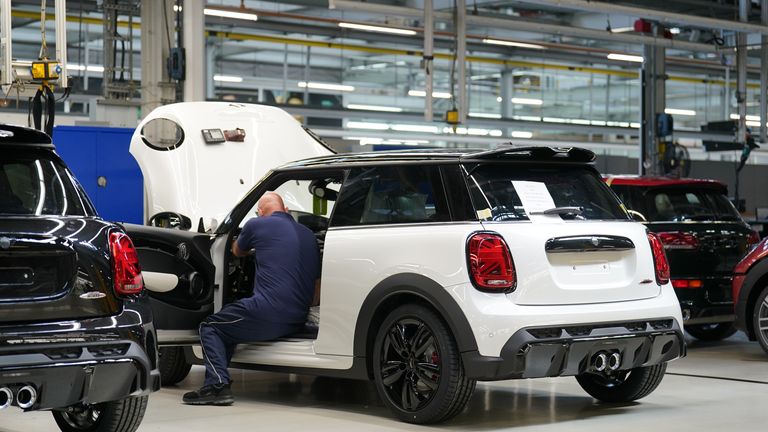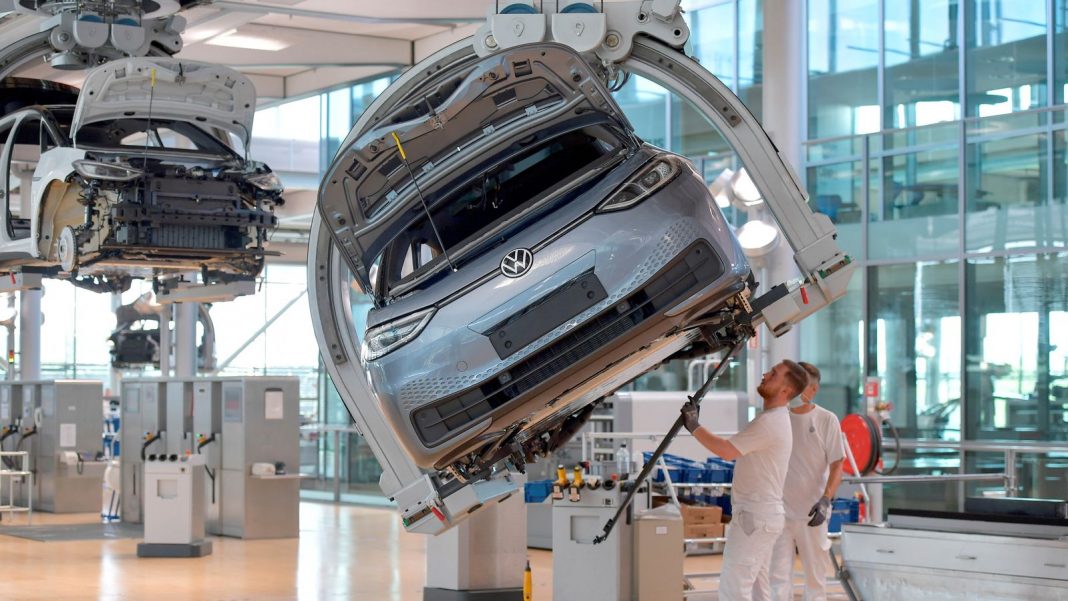The European Union has bowed to pressure from European carmakers and the British government for a delay to the introduction of 10% export tariffs on electric vehicles (EVs), sparing buyers from paying thousands of pounds more for a new car.
So-called ‘rules of origin’ apply to vehicles made in the bloc and sent to the UK – and vice-versa.
Under the Brexit trade rules, carmakers on both sides of the Channel would have been forced to add the tariff to the price of most new electric vehicles from January.
That was because their respective batteries would not have met the ‘rules of origin’.
The tariffs would have been applied widely due to the fact the vast majority are not produced domestically but in China.
Under the rules that were due to be applied from 2024, 60% of the batteries’ total value and 45% of the car as a whole had to be sourced in the UK or EU.
But the European Commission has now proposed delaying the new rules by three years.
Brexit commissioner Maros Sefcovic was initially concerned that a delay would have knocked investment in batteries in the EU.
Maros Sefcovic feared that an extension to the tariff’s implementation would send the wrong signal on investment
But he was reported, by the Financial Times on Tuesday, to have changed his mind and proposed the three-year extension due to the fact that battery investment has been hampered by challenges including the fallout from the war in Ukraine.
The decision was formally adopted by the European Commission on Wednesday and is now expected to be implemented following consultations with member states.
The Commission also said it was setting aside an additional €3bn to boost the EU’s battery manufacturing industry.
Europe’s car industry, many EU national governments and the UK have long argued that the tariff would have added the equivalent to hundreds or thousands of pounds to the price of new electric cars sold Europe-wide, making them less attractive to buyers at a time when households are already struggling to afford basics.
In addition to the inflationary pressures, the move was also seen as further harming demand for the vehicles at a time when they remain more expensive than the traditionally-powered cars they are set to slowly replace, helping reduce reliance on climate warming fossil fuels.
Please use Chrome browser for a more accessible video player

2:17
Sept: Will UK-EU vehicles’ tariffs be eased?
Carmakers on both sides of the Channel are currently struggling to source their own batteries, with most imported from China, despite a growing number of battery gigafactory projects getting the green light.
Nissan and Jaguar Land Rover‘s owner are among manufacturers to have secured government support for factories in the UK.
The EU feared losing market share to Chinese brands if vehicles, made in the bloc and shipped to its biggest export market, were slapped with 10% tariffs.
It is already considering the imposition of tariffs on Chinese-made cars citing state aid from Beijing that support low prices.
The UK has similar concerns about cheap Chinese competition.
The additional €3bn announced by Brussels is also an incentive for investment as both the EU and UK have a 2035 deadline for a ban on the sale of new vehicles powered by petrol or diesel.
The government in Westminster had initially sought a 2030 timeframe but full implementation was overturned by prime minister Rishi Sunak on cost grounds, to the fury of carmakers, the wider business community and climate change activists.
Mike Hawes, chief executive of UK car industry body the SMMT, said of the EU’s proposal: “Such an extension would avoid damaging tariffs on the very vehicles we need consumers to buy, allow UK and EU manufacturers to compete with the rest of the world and, crucially, give the European battery industry time to catch up.
“Above all, voting for the proposal will enable us all to cut carbon emissions while supporting growth and jobs across the entire EV supply chain. We urge every party to get behind it.”







